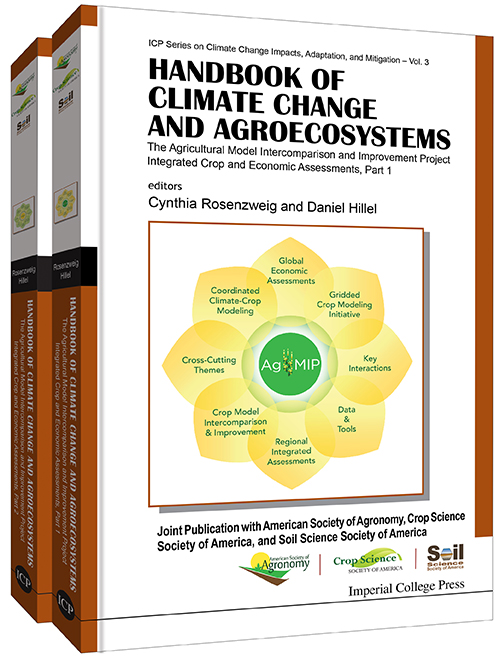Data Interoperability Tools for Regional Integrated Assessments
Abstract
This chapter describes the AgMIP approach to achieving data interoperability across multiple crop models, which consists of establishing an efficient standardized data-exchange mechanism with specifications defined in accordance with international standards; implementing a flexibly structured data schema to store experimental datasets; and providing consistent procedures for supplementing model-required inputs. Some of the challenges encountered with design of data interoperability protocols involve (1) the use of heterogeneous data from disparate sources, (2) uniformly supplying the required model assumptions where data are insufficient to parameterize the crop models, (3) supplying observed and supplemental data equivalently to multiple models each with different input formats, and (4) harmonizing model outputs for use in further analyses.
Download full text in pdf format
 Published as:
Published as:
C. H. Porter,
C. Villalobos,
D. Holzworth,
R. Nelson,
J. W. White,
I. N. Athanasiadis,
M. Zhang,
S. Janssen,
R. Knapen,
J. W. Jones,
K. J. Boote,
J. Hargreaves,
J. M. Antle,
Data Interoperability Tools for Regional Integrated Assessments,
{H}andbook of Climate Change and Agroecosystems, vol. 1, pg. 147-171,
2015, World Scientific Publishing, doi:10.1142/9781783265640_0006.
You might also enjoy (View all publications)
- CY-Bench: A comprehensive benchmark dataset for sub-national crop yield forecasting
- Hybrid phenology modeling for predicting temperature effects on tree dormancy
- To measure or not: A cost-sensitive, selective measuring environment for agricultural management decisions with reinforcement learning
